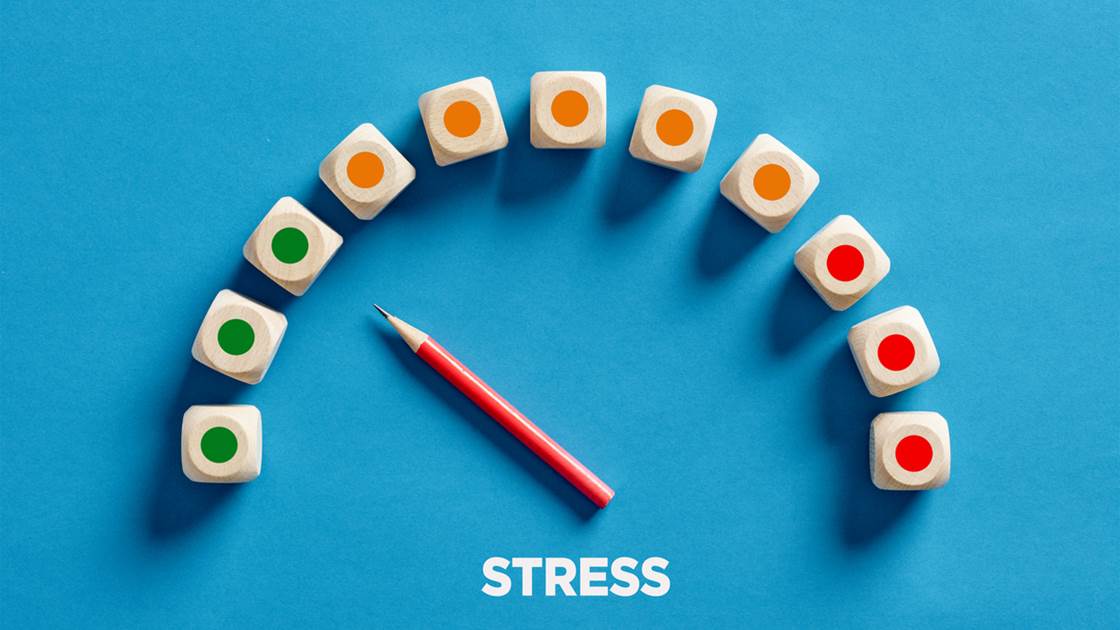Sometimes the world just seems bonkers and out of our control, and yes, that can sure escalate any stress we’re feeling from our day-to-day lives. But something you can do? Take steps to tidy up the messiness inside your own mind. By addressing nagging worries, doing a bit of housekeeping, and injecting your life with a shot of simplicity, you can open up space for more love, optimism and joy. To help, we’ve got 16 ways to feel calmer, fast.
1. Forgive someone
Still nursing a wound because you weren’t invited to a wedding years ago? Consider shedding the burden. “Sometimes you may fear that you’re ‘giving in’ if you let go of a grudge, but you’re just giving yourself the opportunity not to let something that happened in the past affect your future,” says psychiatrist Dr Elana Miller. Not only will the act of forgiveness help you move on, but research has shown that it can also lower levels of anxiety and stress.
2. Listen to music you love
Listening to music with the intention of relaxing helped lower the levels of cortisol (the stress hormone) in college students during exams, and they also self-reported feeling less stressed, says a study published in the journal Psychoneuroendocrinology.
Energising music had the opposite effect – but in general, listening to the stuff they enjoyed seemed to be very important. So if bouncy music is your jam, you may just find your muscles unclenching.

3. Take a slow sip of tea
Cradling a cup of tea in your hands can make you feel cozy and at peace, and being mindful can boost the benefits, says meditation instructor Kirat Randhawa.
“Notice the colour of the tea leaves, the shape of the mug, the scent, what the tea tastes like, and how it feels in the body,” she says.
4. Get that worrisome “thing” checked out
You know, that mole, pain, or bump you tell yourself is nothing (you’re probably right!) but that you’re not 100% sure about. Such things can gnaw at you, and research tells us uncertainty is a lot more stressful than knowing what to expect, good or bad. So have a doctor look at it already!
Either you’ll be able to let that concern go or you’ll get a jumpstart on treating it. “Often what seems like a big deal for you is routine for your doctor – they’ve seen it all and can take some of the worry off your plate,” says Dr Miller.
5. Take one small action
Whether the subject is politics, eco-anxiety, or racial injustice, worry about the state of the world we share leaves many of us feeling overwhelmed or paralysed. But taking a concrete action every day (helping with a campaign, donating time or money to a cause, or biking instead of driving when you can if it’s climate change that is weighing on you) moves you one small step closer to a better world and may make you feel more empowered.
6. Get a move on
Even just a 10-minute brisk stroll can lower your anxiety levels, research shows. It makes sense, considering that any sort of exercise boosts mood-regulating neurochemicals in your brain. This includes serotonin, which helps induce a feeling of calm, and dopamine, which activates the brain’s reward system.
Combine your walk with listening to music you love, or a phone conversation with a friend, and you’ll get an extra boost. Or walk with a friend or even a group because socialising is another feel-good activity.

7. Apologise for that awkward moment
Whether you blurted out something insensitive to a colleague or you forgot your sister’s birthday, guilt may be quietly poking at you. By clearing the air, you’ll repair any damage – or discover that it wasn’t the drama you imagined in the first place.
“We often feel as if there’s a spotlight on us, believing other people are thinking about us way more than they are,” says Dr Miller. “Honestly, no one has the time and energy to judge us as harshly as we judge ourselves.”
8. Limit your social media
Bad news and the screeching tone of people arguing about everything from world politics to the latest reality show can feel like a toothache you can’t help poking with your tongue. But staying up late reading every rant can leave you stressed and exhausted.
“Doomscrolling is a way for your brain to try to maintain control in a very uncontrollable situation in our world,” says neuropsychologist Judy Ho. “But we tend to feel horrible afterward.” Ho suggests limiting scrolling to 25 minutes, with a hard stop when that time’s up.
9. Pet your fur-baby (or someone else’s!)
There’s a bunch of research showing that interacting with dogs and cats is good for both improved mood and stress relief. For example, when college students were given the chance to interact, pet, and cuddle with these critters for 10 minutes in an animal visitation program, they experienced a reduction in cortisol levels and reported less psychological stress, a study found.
Other research showed an increase in feelings of emotional support when the pet is the person’s own. So if you have a dog or cat, take advantage of that when you’re feeling tense; and if you’re not, consider volunteering at a local animal shelter – for the animals’ benefit as well as your own!
10. Swap to-dos with a friend
There’s always one chore you just can’t seal the deal on – and seeing it reappear on your to-do list can raise your stress temperature. Instead, ask a friend who doesn’t mind hemming your daughter’s skirt to help you out with that, and do a task she hates (say, updating her computer) that feels like no biggie to you.

11. Do a cathartic mini-clean up
Spending just a few minutes cleaning one spot that’s been grossing you out (like the crumb-filled sofa cushions or that sticky shelf in your pantry) can give you benefits fast, because it requires a little planning and a short burst of physical activity, both of which can reduce stress, says psychologist Dr Debra Kissen. Plus, think how much better you’ll feel when you can sit on the couch without hearing a weird crunching sound.
12. Log on or meet up for support
It can be easy to think you’re the only one struggling with a personal challenge. Support groups can be helpful for whatever is going on. “You can get tips on coping, but just realising that this is a shared experience can relieve a lot of stress,” Dr Miller says. And the sense of fellowship and community is a huge win.
If you're experiencing anxiety or depression, take a look at these mental health support groups.
13. Breathe through your feet
When you’re feeling pulled in too many directions, you can centre yourself by bringing attention to your feet, says Randhawa. If you’re indoors (or outdoors someplace clean and safe), take off your shoes and stand tall, with your shoulders relaxed.
“As you breathe in, notice each toe and then the entire foot on the ground,” she says. “This has a way of really helping you feel in control of your body, and you’ll think, ‘How would I like to respond in this moment?’”
14. Cancel something
Look at your calendar and find one thing you really, truly don’t have to attend, like a meeting that can go on just fine without you or a social event you’re not feeling psyched about. Bow out and replace it with... nothing.
“You know your body needs sleep, but it also needs rest, and those are two different things,” says psychotherapist Asha Tarry. Giving yourself permission to do nothing will recharge your battery, lower your blood pressure, and allow you to think more clearly, she adds.
15. Stretch your body
Stretching relaxes and loosens the body, of course, but there’s also evidence that it can ease the mind because when your body is tense, your mind gets, well, tight as well. A controlled trial showed that doing 10 minutes of stretching after work for three months made people feel less anxious and burned out. And according to the University of California, Berkeley, stretching in a slow and mindful way is a great way to reduce stress. Breathe in a slow and controlled way, and focus on the muscles you want to stretch.

16. Make Monday more appealing
On Sunday, when the clock starts ticking down to Monday morning, you may experience a wave of anxiety about deadlines, toxic co-workers, or a stressful commute. To dial down the “Sunday scaries,” schedule something you enjoy for Mondays: lunch with a favourite colleague, an after-work manicure self-care appointment, or a night to binge your favourite streaming series.
If you feel like stress or anxiety is getting on top of you, contact Lifeline on 13 11 14.



.jpg&h=90&w=90&c=1&s=1)






